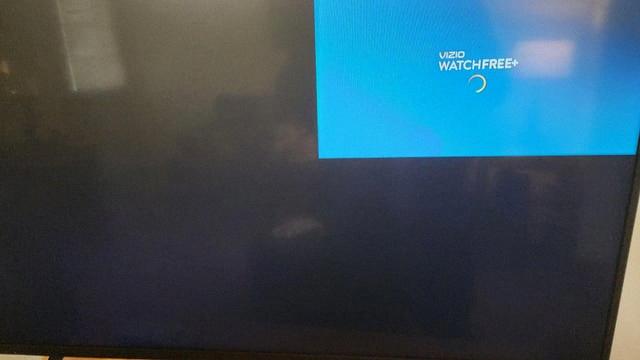Title: Samsung TVs: A Critical Look at the Downsides
Introduction:
Samsung is a well-known brand in the TV industry, offering a wide range of models to suit various budgets. While they are generally praised for their picture quality and features, it is important to acknowledge that no brand is perfect. In this article, we will delve into some common issues and drawbacks that some users have experienced with Samsung TVs.
1. Limited Viewing Angles:
One of the areas where Samsung TVs fall short is in their viewing angles. Compared to competitors like LG, Samsung LED-backlit LCD TVs tend to have narrower viewing angles. This means that if you’re not sitting directly in front of the TV, the picture quality may degrade, resulting in washed-out colors and reduced contrast.
2. Smart Features Limitations:
Samsung TVs are equipped with their own smart platform called Smart Hub, which offers a range of apps and streaming services. However, some users have reported issues with app availability and functionality. Occasionally, certain apps may not be available or may not work properly, which can be frustrating for those relying on specific streaming services.
3. Software Updates and Support:
While Samsung regularly releases software updates to improve performance and add new features, some users have reported difficulties in obtaining timely updates for their TVs. This can result in missing out on important bug fixes or new features that could enhance the overall viewing experience. Additionally, customer support experiences have varied, with some users reporting subpar assistance when addressing TV-related issues.
4. Advertisements and Bloatware:
Samsung TVs have been known to include built-in advertisements and pre-installed apps that some users find intrusive. While these ads can be disabled or minimized, they can still be an annoyance for those who prefer a clean and ad-free viewing experience. Additionally, certain pre-installed apps, often referred to as bloatware, may take up precious storage space and cannot be uninstalled.
5. Audio Quality:
Although Samsung TVs offer a wide range of models, their built-in audio quality is generally not as impressive as their picture quality. While some higher-end models may have decent audio, many users find that investing in separate speakers or a soundbar is necessary to truly enhance their audio experience.
Conclusion:
While Samsung TVs offer a range of features and options to cater to various budgets, it is important to consider their drawbacks as well. Limited viewing angles, occasional smart feature limitations, software update delays, built-in advertisements, and average audio quality are aspects that some users have found unsatisfactory. However, it is worth noting that these issues may not be a deal-breaker for everyone, as Samsung TVs still provide a solid overall viewing experience.
Ultimately, when considering a TV purchase, it’s essential to research and compare different brands to find the one that best aligns with your preferences and requirements.
Are Samsung TVs Good Or Bad?
Samsung TVs are widely regarded as being good, offering a range of features and options that cater to a variety of budgets and preferences. Here are some reasons why Samsung TVs are considered to be good:
1. Extensive range: Samsung offers a wide range of TVs, catering to different price points and sizes. Whether you’re looking for a basic TV or a high-end model, Samsung has options to suit your needs.
2. High-quality display: Samsung TVs are known for their high-quality display, with vibrant colors and sharp image clarity. They use advanced technologies like QLED and OLED to deliver stunning visuals, providing an immersive viewing experience.
3. Smart features: Samsung TVs come with a range of smart features, allowing you to access streaming services, apps, and internet browsing directly from your TV. The user interface is generally intuitive and easy to navigate, enhancing the overall user experience.
4. Design and aesthetics: Samsung TVs are well-designed, with sleek and modern aesthetics that can complement any living space. They are often slim and lightweight, making them easy to mount on walls or place on TV stands.
5. Audio quality: Samsung TVs are known for their built-in audio quality. While external sound systems are always an option, Samsung TVs generally offer decent audio performance, providing an immersive sound experience without the need for additional speakers.
6. Reliability and durability: Samsung is a reputable and reliable brand, known for producing durable and long-lasting products. Their TVs are built to withstand frequent use and are backed by warranties, providing peace of mind to consumers.
It’s important to note that individual preferences may vary, and what one person considers good may not be the same for another. It’s always recommended to read reviews, compare specifications, and consider personal preferences before making a purchase decision.

What Are Common Problems With Samsung TV?
Common problems with Samsung TVs include:
1. Black screen for video input: This issue can occur if there is a problem with the HDMI or AV cables or if the input source is not correctly selected. Check the cables and ensure the correct input source is selected on the TV.
2. No audio coming from the TV: If there is no sound, check the volume settings on both the TV and any external audio devices connected to it. Also, make sure the audio cables are securely connected.
3. Flickering image on screen: This could be caused by a faulty cable or input source, or it could be a problem with the TV itself. Try using a different cable or input source to see if the issue resolves.
4. Smart apps not working: If the apps on your Samsung TV are not working, first try restarting the TV and checking for any available software updates. If the problem persists, you may need to reset the Smart Hub or contact Samsung support for further assistance.
5. Smart Hub not showing apps: If the Smart Hub is not displaying any apps, ensure that the TV is connected to the internet and check for any available software updates. If the issue continues, try resetting the Smart Hub or contacting Samsung support.
6. Wi-Fi not working on TV: If your Samsung TV is having trouble connecting to Wi-Fi, first ensure that your Wi-Fi network is working properly. Try restarting your router and TV, and make sure the TV is within range of the Wi-Fi signal. If the problem persists, you may need to reset the network settings on the TV or contact Samsung support.
7. Dead pixels on screen: Dead pixels are tiny black spots on the screen that do not display any image. Unfortunately, dead pixels are a hardware issue and cannot be fixed easily. Contact Samsung support for further assistance if you notice dead pixels on your TV.
Common problems with Samsung TVs can include black screens for video input, no audio, flickering images, issues with smart apps and the Smart Hub, Wi-Fi connectivity problems, and dead pixels on the screen. Troubleshooting steps such as checking cables, updating software, and resetting settings can help resolve many of these issues. If problems persist, contacting Samsung support is recommended.
What Is The Lawsuit Against Samsung TV?
The lawsuit against Samsung and Best Buy in the US alleges that some of Samsung’s QLED 4K TVs do not have certain features as advertised. Specifically, the lawsuit claims that these TVs do not include Motion Xcelerator Turbo+, FreeSync, or HDMI 2.1 ports, which were advertised by both the company and the retailer.
This class action lawsuit means that a group of individuals is collectively suing Samsung and Best Buy for the alleged false advertising and misrepresentation of the features on these TVs. The plaintiffs argue that they purchased these QLED 4K TVs based on the advertised features and paid a premium price for them, only to find out later that those features were not actually present.
The Motion Xcelerator Turbo+ feature is supposed to enhance the clarity and smoothness of fast-moving scenes, providing a better viewing experience. FreeSync is a technology that synchronizes the refresh rate of the TV with the frame rate of compatible gaming devices, reducing screen tearing and stuttering during gameplay. HDMI 2.1 ports offer higher bandwidth, enabling support for higher resolutions, faster refresh rates, and other advanced features.
The lawsuit claims that the absence of these features affects the overall performance and value of the TVs, and seeks compensation for the affected consumers. It is important to note that these allegations are yet to be proven in court, and Samsung and Best Buy have not publicly responded to the lawsuit at the time of writing.
The lawsuit against Samsung and Best Buy alleges that certain QLED 4K TVs do not have the advertised Motion Xcelerator Turbo+, FreeSync, and HDMI 2.1 ports, leading to claims of false advertising and seeking compensation for affected consumers.
Is LG Or Samsung TV Better?
When comparing LG and Samsung TVs, it is important to consider several factors to determine which brand is better for your needs. Here is a detailed analysis:
1. Picture Quality:
– Samsung TVs generally have better picture quality than the average LG LED-backlit LCD TV.
– Samsung TVs tend to provide a brighter display and better contrast, resulting in more vibrant and realistic images.
2. Viewing Angles:
– LG TVs typically have much wider viewing angles compared to Samsung TVs.
– This means that you can enjoy consistent picture quality even if you are not sitting directly in front of the TV, making LG a better choice for larger rooms or when multiple viewers are present.
3. Smart Features:
– LG TVs often offer better smart features compared to Samsung TVs.
– LG’s webOS platform is highly regarded for its user-friendly interface, easy navigation, and a wide range of apps and streaming services.
– Samsung’s Tizen platform is also good, but LG’s webOS generally receives more positive feedback.
4. Pricing:
– Both LG and Samsung offer TVs at various price points, so the final decision may depend on your budget and specific requirements.
– In general, Samsung TVs tend to be slightly more expensive than LG TVs, but this can vary depending on the model and features.
5. Additional Features:
– LG TVs are known for their excellent sound quality, with some models featuring Dolby Atmos support and built-in soundbars.
– Samsung TVs, on the other hand, are often praised for their sleek design, including ultra-thin bezels and stylish stands.
Ultimately, the choice between LG and Samsung will depend on your personal preferences and priorities. If picture quality and contrast are your main concerns, Samsung might be the better option. However, if wider viewing angles and superior smart features are more important to you, LG could be the preferable choice. It is also recommended to compare specific models within each brand to find the right TV that meets your specific requirements.
Conclusion
While Samsung TVs are generally considered to be a top brand in terms of overall quality, there are some common issues that users may experience. These include black screens for video input, no audio coming from the TV, flickering images on the screen, smart apps not working, smart hub not showing apps, Wi-Fi connectivity problems, and dead pixels on the screen. These issues can be frustrating and may impact the overall viewing experience.
Additionally, there have been recent reports of a class action lawsuit filed against Samsung and Best Buy, alleging that some of Samsung’s QLED 4K TVs do not feature certain advertised features such as Motion Xcelerator Turbo+, FreeSync, or HDMI 2.1 ports. This raises concerns about false advertising and the accuracy of the product specifications.
While Samsung TVs generally offer better picture quality and a wide range of options, it’s important for consumers to be aware of these potential issues and to thoroughly research and compare different models before making a purchase decision. It may also be beneficial to consider other brands, such as LG, which are known for their wider viewing angles and better smart features.
Ultimately, the decision to purchase a Samsung TV or any other brand should be based on individual preferences and needs. It’s important to weigh the pros and cons, consider customer reviews, and make an informed choice that best suits your specific requirements.







